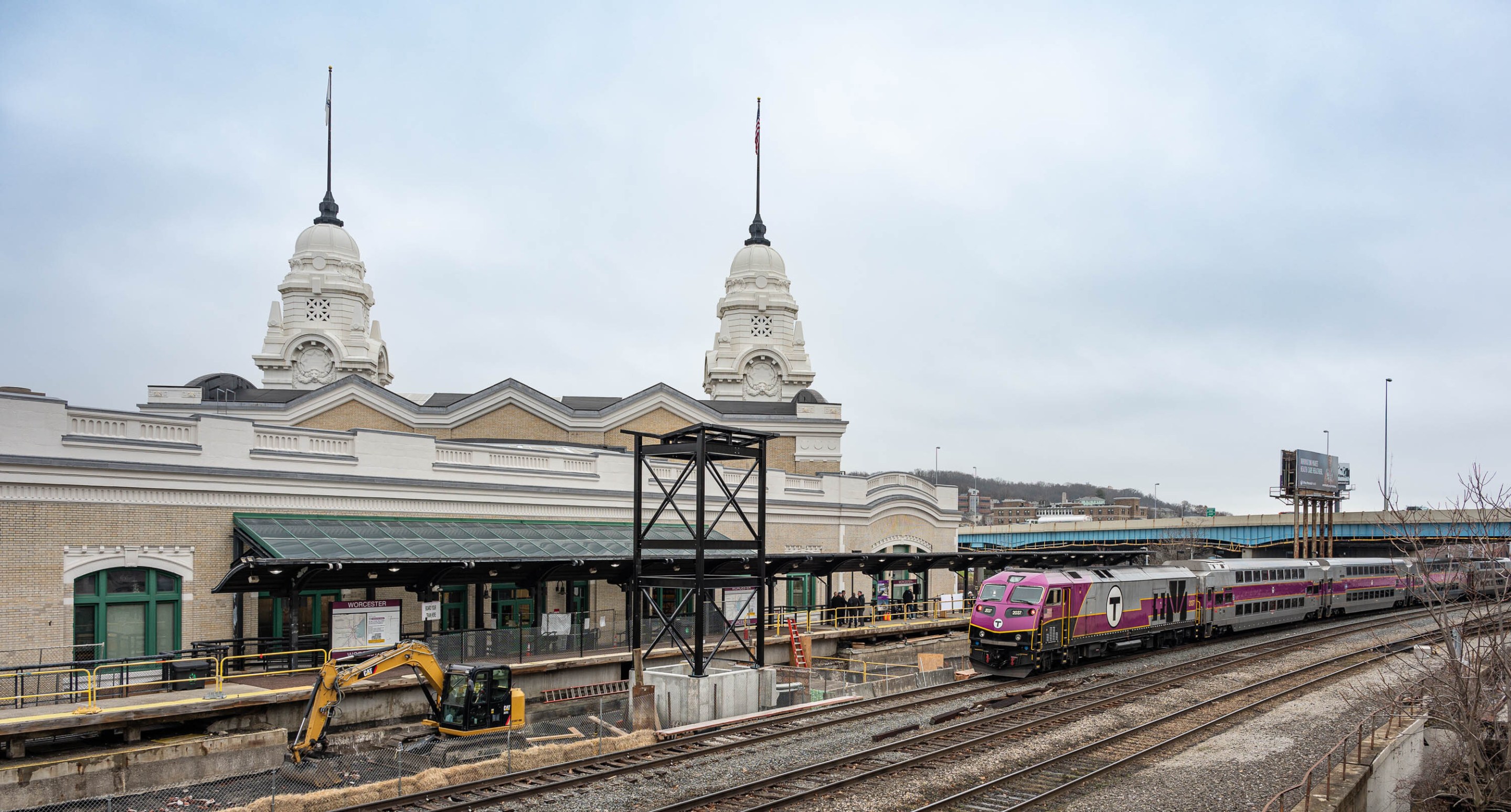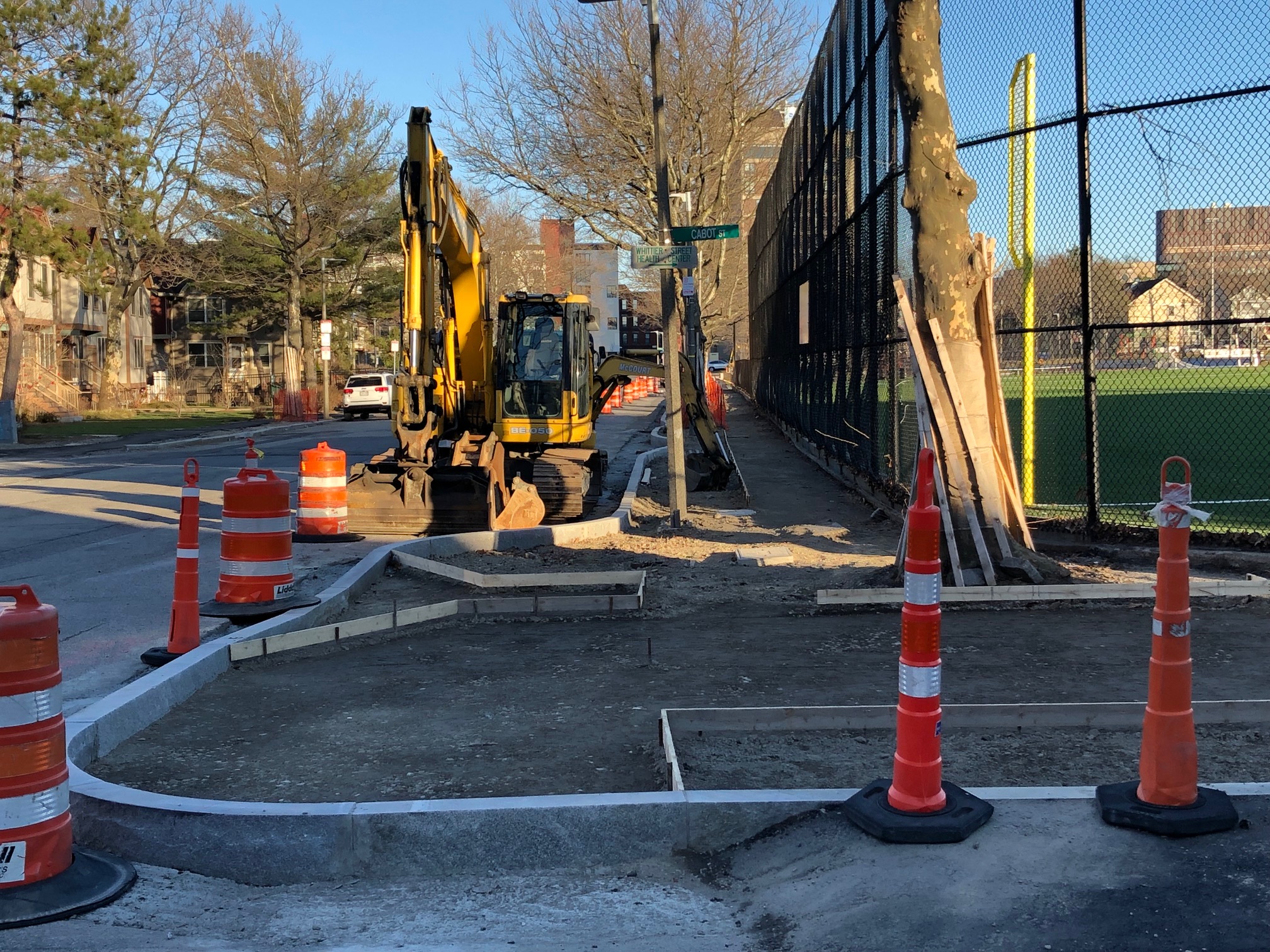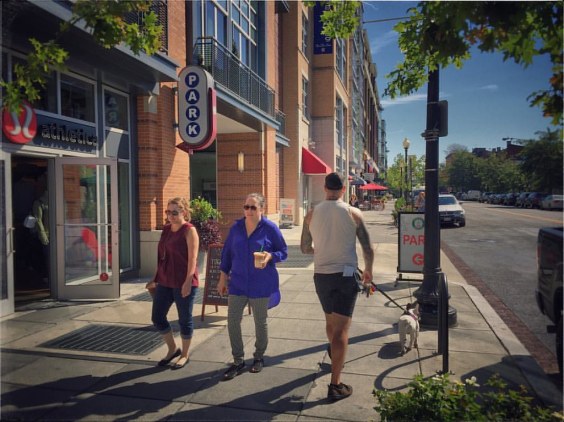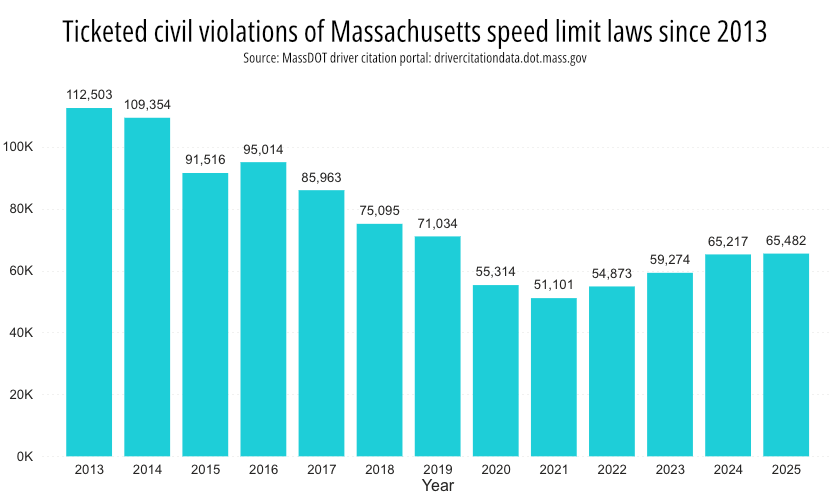A schedule change that sacrificed a daily Boston-to-Worcester express train for one that makes more stops in suburban MetroWest communities appears to have helped the MBTA attract hundreds of additional riders.
But Worcester leaders say that it's another example of how state policymakers prioritize Boston over other regions in the Commonwealth.
From 2016 until last fall, the MBTA ran a daily "Heart to Hub" express train, which ran express between Worcester and Framingham and again between Framingham and Lansdowne station in Boston.
That train gave Worcester rush-hour commuters a ride that arrived in Boston in under an hour (the scheduled journey time all the way to South Station was 1 hour and 5 minutes).
Other Worcester Line trains, which make additional stops at suburban stations along the way, typically takes about one and a half hours to make the same trip.
Less express, but more frequent
At the end of 2023, the MBTA and Keolis, the company that operates the T's commuter rail system, adjusted the schedule to replace the daily express trains with a more typical "zonal express" that makes local stops between Worcester and West Natick, then runs express into Boston.
That change meant that previous Heart to Hub riders now have to spend an extra 22 minutes on the train between Worcester and Boston.
But riders at the suburban stops in between – in Grafton, Westborough, Southborough, Ashland, Framingham, and West Natick – have one extra train they can catch every morning and evening.
And instead of trains that left at the beginning of every hour (except the Heart to Hub, which left at 6:30 a.m.), departures are now more evenly spread out in the mornings and evenings, generally leaving every 45 minutes during rush hours, and hourly at other times.
The schedule change also allowed the T to add another daily peak-hour round-trip from between Framingham and Boston.
According to Jake O’Neill, Manager of Media Relations and Government Affairs for Keolis, the changes have helped attract a significant number of new daily riders to the Worcester Line.
"Ridership on the new zonal express Heart to Hub doubled from 240-400 daily passengers in the fall to 640-800 daily passengers (today)," wrote O'Neill in an email to StreetsblogMASS. "Pre-pandemic, the Heart to Hub averaged about 250 daily passengers."
O'Neill also claimed that other Worcester Line trains are now less crowded as well, now that riders at intermediate stops have more departures to choose from.
Worcester 'losing out'
While the increase in ridership and a more consistent train schedule are positives, elected officials in Worcester itself are keen to remind the MBTA that the gains came at the expense of Worcester passengers who no longer have access to an express ride into Boston.
State Senator Michael Moore of Millbury represents both the southern part of Worcester and the town of Westborough, one of the towns that benefited from one extra daily round trip from the schedule changes.
He appreciates the fact that commuter rail ridership gains is reducing traffic regionally. But he's also mindful that, for former Heart-to-Hub riders, the schedule changes lengthened their daily commute by 40 to 45 minutes.
"We’ve got 250 to 400 riders who were using the express train to get to Boston faster at 8 a.m. – so now they’re not getting to work as early, and maybe that’s complicating their family lives with a longer commute," Sen. Moore told StreetsblogMASS.
For Moore, it's another example of how transit policy in Massachusetts favors people in the Boston region over riders in other parts of the state.
He also cites the state's anemic investment in regional transit authorities like the WRTA, in spite of the fact that those agencies are seeing a surge in new ridership.
And he cites the Allston Multimodal Project, a multi-billion dollar project that would build a new Worcester Line station for Boston, but is also expected to impact Worcester Line schedules and tie up car traffic on the Massachusetts Turnpike for several years' worth of construction.
"The people in the rest of the state are losing out to people in the Boston region," says Sen. Moore.
Infrastructure improvements could lead to faster rides for everyone
Worcester's Union Station is currently a busy construction site, as MBTA workers build a new passenger boarding platform between two tracks on the other side of the existing platform (see photo at the top of this article).
Worcester Union Station currently can serve only one train at a time, on the single track immediately adjacent to the station. But when the new platform opens later this year, two trains will be able to park side-by-side in Worcester, allowing for more frequent service and operational flexibility (the upgrades will also make Worcester fully ADA-accessible).
According to a 2019 report from TransitMatters, electrifying the Worcester line, along with other station improvements, could enable trips between Boston and Worcester in less than an hour – even with stops at every suburban station along the way.
Adding more trains to the Worcester Line's schedule could also benefit commuters along the entire length of the Worcester Line, by giving them less time to wait between trains.
"The central Mass. delegation has been meeting with the T and the Governor’s office, and we’re being told the long-term goal is to run trains every 30 minutes," Sen. Moore told StreetsblogMASS. "If we could have that frequency, it would alleviate this whole issue."






